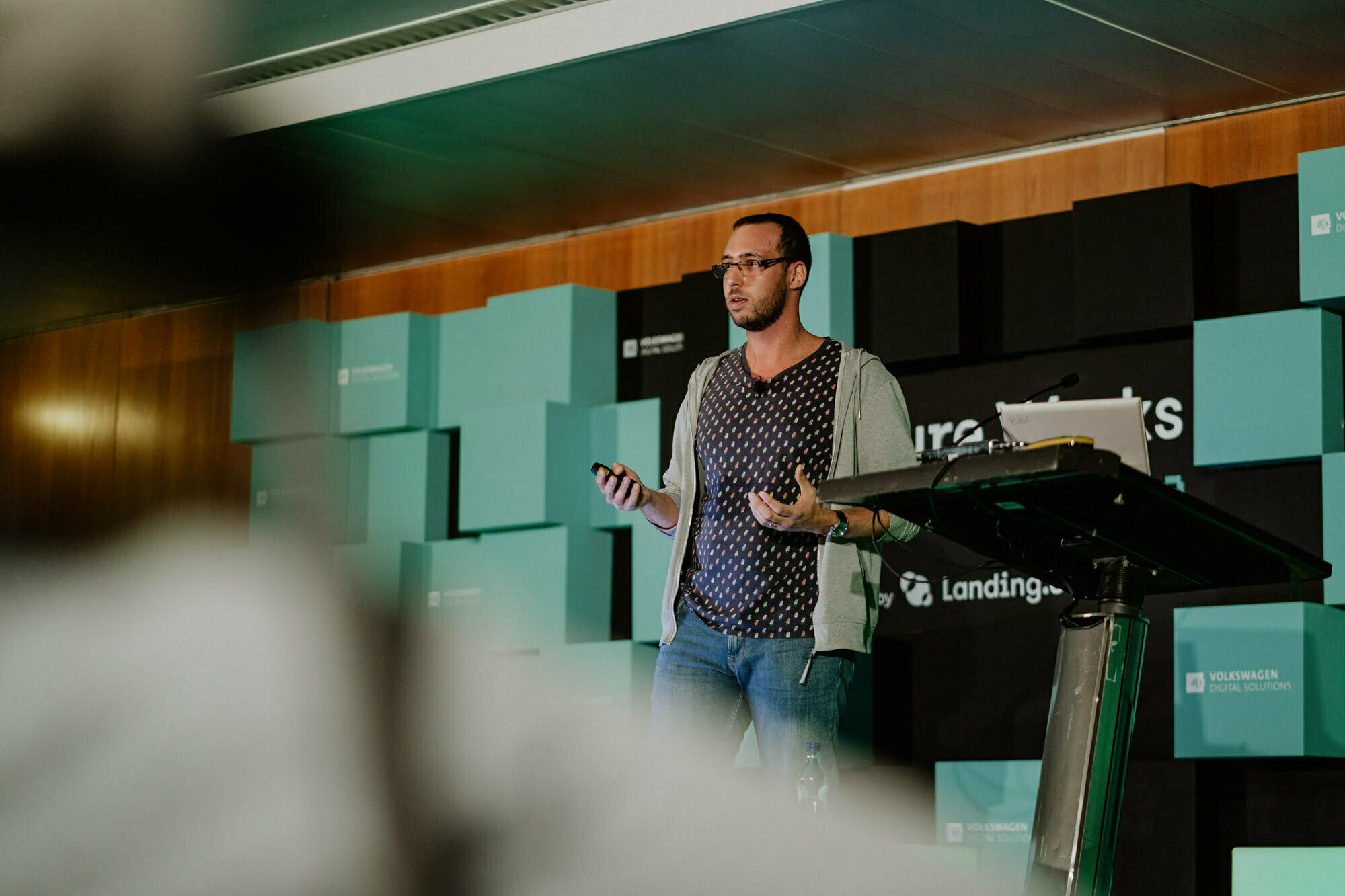At our Future.Works Tech Conference in 2021, Pedro Balage, Director of Machine Learning at aisle 3, talked about exactly that: how to venture into the profession, salary expectations and necessary skills.
Pedro Balage has an impressive background: he’s worked in Data Science for 10 years and integrated companies like Priberam, DefinedCrowd and Farfetch, and he’s hired and managed more than 15 data scientists throughout his career. He holds a PhD degree from the University of São Paulo, Brazil, and has made several contributions to the topics of Machine Learning and Natural Language Processing.
According to Harvard Business Review, a data scientist is the sexiest job of the century as many companies see huge value in this career path. According to Balage, Data Science is a broad name that combines three areas:
- Hacking skills—someone that knows how to program.
- Stats and maths.
- Business knowledge.
“What makes a data scientist? I still don’t know.”
—Pedro Balage, Director of ML @ aisle 3
The truth is that companies want a data scientist to become everything, and sometimes, that’s not easy. Companies usually want a data scientist to do Research, Software Engineering, Data Engineering and Analytics. However, according to Balage, companies nowadays are increasingly needing and looking for someone specialised in each area. They end up with individuals good in all four areas but more specialized in a specific one.
How to become a data scientist?
The most important thing to remember is that people need to have a strong background. In Portugal, you must have at least three of the following:
- College degree in STEM (Science, Technology, Engineering and Mathematics) areas;
- Master’s degree with a machine learning project (most companies prefer candidates with a Master’s degree over a PhD). People should look for a company that can provide them with a Master’s project—it will probably not be paid, but it can open doors to work within that company in the future;
- Post-Grad degree in Data Science;
- A complete course in Data Science (don’t take just one class, try to take a specialization course);
- Strong participation in Data Science challenges;
- Previous experience in Data Science projects in the industry (one of the best things people can do is to ask around for Data Scientist projects);
- Active participation in the community (there are events and meetups).
Everything that shows the recruiter that someone is inside the Data Science community or that is contributing to Data Science projects is a big plus.
Where can you find jobs in Data Science?
During his talk, Balage mentioned that a quick search on LinkedIn showed him there were 1300 results for Data Science jobs in Portugal. He wanted to demonstrate that the issue right now isn’t a lack of jobs, but a lack of good candidates.
But where can you look for jobs in Data Science? Landing.Jobs is a great option, and don’t forget the power of referrals (networking and community are important) and checking companies’ careers pages directly as well.
According to the ML director, people shouldn’t shy away from spontaneous applications because recruiters always look for new talent.
What do recruiters look for when they hire a data scientist?
What are recruiters looking for when hiring someone?
- Experience: which college did the candidate attend? What experience do they have? Why are they interested in this position? What can they bring? A one-page CV should be enough to guide this discussion;
- Skills: what do they know? What is their skill level in Phyton and ML? Discussing someone’s experience is great for evaluating that person’s abilities.
- Culture: what would someone do in this situation? What do they read to stay up-to-date? Companies look for candidates who fit and grow with them—this is the most important aspect of candidate assessment.
Salary expectations
Keep in mind that salaries vary due to experience. Let’s see what can impact the salary range:
- The market does not have enough senior profiles: lack of experienced data scientists, plus experienced data scientists are leaving for other European countries;
- Different salary scales: local businesses, international companies, startups and scaleups;
- Difficulties to “sell” DS internally: inexperienced managers/leadership and lack of a data culture.
You can get a general overview of average salaries in the Global Tech Talent Trends 2022 report.
Career paths
Someone enters the DS world and wants to progress in their career: where can they go?
This world is divided into three areas: the entry-level data scientist, the mid-level and the senior level. The difference between a mid-level and a senior level is the value someone can produce for the company: can he autonomously lead projects? Can he mentor junior data scientists?
After that, people can have a wide career. If someone goes to management, they will lead data scientist teams. Or they can turn more technical and become a principal data scientist (someone who usually has expertise in some domain).
Care and feeding
How to make a data scientist happy?
- Learn from experienced data scientists;
- Journal club;
- Challenges and hackathons;
- Show and tell;
- Powerful equipment;
- Support, ownership and purpose.
If you want to watch the full talk with Pedro Balage, just click here! And if you want to browse jobs in Data Science, check these out.







0 Comments